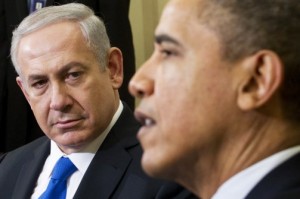Much has been written in the press regarding what appears to be a chill in relations between the White House and Israeli Prime Minister Netanyahu over plans to attack Iran. However, this distance may in fact increase regional instability and the possibility of an attack on Iran.
B2Wire analysts agree that the US should strongly oppose and take actions if necessary to prevent an Israeli unilateral strike on Iran. It would appear then that what looks like US stonewalling on an Iran attack is a positive development. However, this is a very dangerous game of brinkmanship Washington is playing.
As previously noted in B2Wire articles, if Israel perceives the US as unwilling to support a strike, it significantly increases the probability that Israel will use nuclear weapons and false flag tactics to cause Iran maximum damage and pull the US into the war. This is a critical strategic calculus because Israel does not have the strategic depth or capital to weather a prolonged Iranian War and retaliation that will likely reach Israel’s home front. Israel must have an attack plan that quickly eliminates Iran’s retaliatory capability up front because planning assumptions beyond a first strike imply inherit risk and uncertainty. By initiating an attack via a false flag strategy, Israel gets the added advantages of confusing Iran, buying time, and potentially suckering Iran into attacking the US and forcing us into a war on their behalf. Further, if Israel assesses that the US is unlikely to become involved, the only option that is likely to produce decisive and lasting setbacks to the Iranian nuclear capability would through the execution of a nuclear strike. Without the use of nuclear weapons, Israel simply does not have the military capability to execute a broad and lasting decisive strike against both Iran’s nuclear facilities and retaliatory capabilities without accepting a high risk of failure and increased casualties.
Based on this, B2Wire analysts recommend that the US engage Israel and Iran in a forceful and direct manner designed to de-escalate and assuage both sides’ fears. The US military would better serve US national security interests by being used to prevent either side attacking the other than it would in supporting an attack by one side against the other.
By Guiles Hendrik
